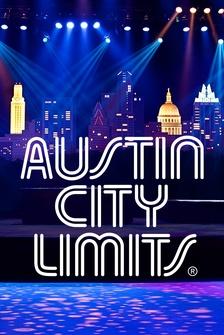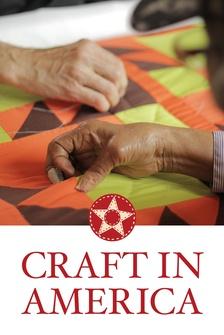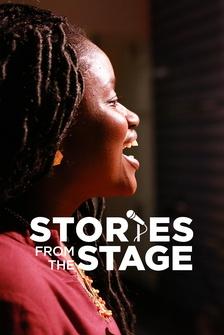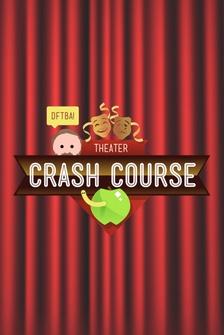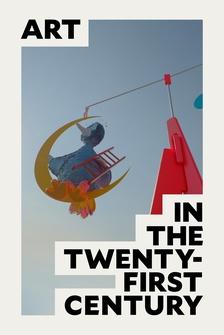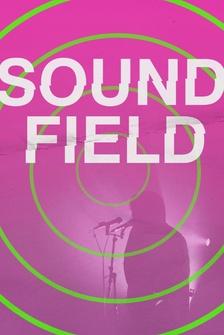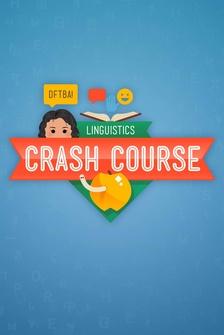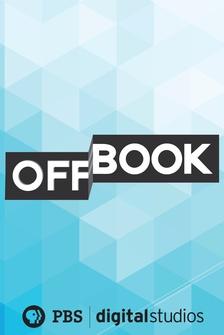BEN: I never want a dumb down a note of anyone's music.
LAUFEY: I'd always wanted to find a way to mix these disciplines together.
DODIE: What he wants to do is like, put a big arm around me and like, show me the world of arranging and orchestration.
JACOB: It's not about how much music you know, it's about, with the music that you know what choices do you choose to make?
STEVEN: The orchestra that he's working with isn't just doing nonsense as a backup band.
LAUFEY: I finished the song and I was healed.
And now I have a career because of it, it's crazy.
(theme music plays).
♪ BEN: I've earned no right to be a snob about any of it.
I'm not a walking encyclopedia of orchestral music, it's just music.
And it's, you know, it's lumped in there with Peter Paul and Mary and Little Richard and Lou Rawls and Beethoven, Bach and Ravel and... it's music, just music.
I liked orchestra.
I didn't think it was a miracle that there were 100 kids in the room uh, playing and there was a conductor and we were playing incredible dead Germans' music, none of it registered to me at the time, but it became part of me.
STEVEN: Ben has a real thing for making sure the orchestra that he's working with isn't just doing nonsense as a backup band.
ALEX: And I just love that he is trying to put together, what could be conceived as a kind of um... you know elitist world of classical music together with something that's very popular and very common and mashes them together, and makes them work together to form something completely uh, uh, dynamic.
REGINA: I'm in awe of, of how much he learned about orchestration; how much he learned about the orchestra; what he has done for the orchestras of America.
Because I think a lot of us love classical music.
BEN: I like to be useful.
And I see um... a shovel to pick up and chip in.
And that is that the orchestra has always had to find a new audience and someone has always stepped up and tried to do that.
And maybe it was Leonard Bernstein in one era, and Arthur Fiedler in another era.
Arguably Mozart in an era, because you know, they're playing folk music in the middle of, of orchestra shows.
But um, I see that as being um, a useful helpful thing for me to do.
So what do I want to do?
I never want a dumb down a note of anyone's music.
I want it all to be completely expressive.
And I want the two genres to have an experience of working together that is seamless and does something that is left, seriously left on the stage.
ANNOUNCER: Please welcome, Ben Folds!
(applause).
(applause).
♪ ♪ ♪ I could not see the haze ♪ ♪ Back in the day ♪ When we lived inside of it ♪ Now I'm floating away ♪ I'm haunting the halls ♪ Night and day ♪ Out in some storage space out on the highway ♪ ♪ Fifteen years tossed in boxes ♪ ♪ Chocked with old bills, and phones ♪ ♪ Pictures and trash ♪ Of the traumas and memories attached ♪ ♪ Now I'm wondering ♪ What matters most?
♪ A true friend is ♪ Someone who when you are with them ♪ ♪ You know what matters most ♪ Oh, but that door slammed so tight ♪ ♪ With you and our time trapped behind it ♪ ♪ Now you're floating away ♪ ♪ But in these days of overwhelming change ♪ ♪ I just wanna know what I want ♪ ♪ Because I only seem ♪ To know what I don't ♪ With so little time ♪ What matters most?
♪ Mmmmmm ♪ Tell me what ♪ What matters most?
♪ Mmmmmm ♪ ♪ ♪ I keep going for the phone ♪ To send you a note with the news ♪ ♪ And I'm thinking, "Man, you won't believe this" ♪ ♪ You're gone ♪ So I'm sorting through photos of fake smiles ♪ ♪ And photos of real ones ♪ Now I've thrown the whole lot in the bin ♪ ♪ Just got a glimpse ♪ Of what matters most ♪ Mmmmmm ♪ Tell me what ♪ ♪ What matters most?
♪ Mmmm mmmm ♪ ♪ (applause).
BEN: Thank you.
(applause).
So I go through an incredible process and here at the Kennedy Center the team is... we, we've been growing together with this.
So, you know, Justin Ellis is sort of my partner in crime here.
He is a walking encyclopedia, and that's really useful.
JUSTIN: Yeah it took you know five years of like workshopping and I think that the thing that I've tried to impress upon my colleagues across the industry, is like, the value of having the arranger in the room being of utmost importance.
Almost more important than anything else.
WILSON: He's really cultivated this relationship with, with these arrangers.
Maybe they'll take a pop song and then arrange it in such a way that makes it almost classical, or at least more classical, and more, um... more rewarding for the orchestra to play.
BEN: I do recognize a uh, social and cultural schism between um, orchestral music and pop music, because I put the two together so often, and I'm realizing that you need to recognize, respect and smooth over, you know any fault lines that you can find between the two.
And that begins when you book them.
And I call the artist, I'll let them know what they're in for.
DODIE: I was very excited.
I was like "Oh yeah, maybe one day" and here we are.
Ah, it's so cool!
BEN: Then they need to understand what they're walking into.
They're introduced to who I think will be uh, the best orchestrator for their music.
That they have some collaboration, some say-so.
I, I tell them that arrangement is something they may be good at, but orchestration is not the same thing.
GABE: Coming from a Bluegrass world where everyone's playing all the time, you don't want to do that with the symphony.
That gets old really fast, you know like, save it for the big moment.
JHEREK: It's so much more exciting when you take away the strumming guitar and the big blocky keyboard outlining all the harmony.
That's a huge part of I think why Ben and I really connected.
DODIE: Ben is so kind.
I really feel like he is so uplifting and supportive.
I feel like what he wants to do is like, put a big arm around me and like, show me the world of arranging and orchestration.
JHEREK: He is really great at knowing which arranger should work with which artist and, you know, who's going to bring out what in, in each artist's music.
BEN: I usually suggest that they might think to write something that would get them fired.
Anytime you get a chance to have an instrument sound out, in such a way in context, that makes us feel like we've never heard that instrument before, try to go there.
And keep it as sparse as possible.
Don't base it on the percussion section, if you can help it.
These are the things that we talk about, I don't know if I say it exactly like that, but Jherek completely gets that.
JHEREK: It's different with every artist in, for this series, where sometimes people want to be really involved, um, like Dodie.
DODIE: I don't really know anything about the expectations of orchestral arranging, so I'm so grateful to Jherek for, yeah, again, like, taking me under his wing and working together.
We were kind of like on a very tight deadline.
But Jherek was so open.
I think I just like blasted a whole load of notes his way and sent like full videos of me chaotically playing chords on the piano.
JHEREK: She actually sent me some sketches where she's like, "Oh the cellos could do this" and the, you know... that's very rare.
DODIE: And he just took all of that in and sent back something perfect.
Um, which is amazing for someone to be so open, and egoless, and will work to whatever you want.
Yeah, it's like the dream collaborator.
That's so rare in people, I think.
JHEREK: Just trying to find the, the little things that aren't... you're not hearing well enough or the phrasing isn't what you were intending, and you thought you wrote it correctly but once it's actually under people's fingers then it doesn't sound the way that you think it's going to sound.
And so yeah it's usually a few little adjustments um, but that, that's the fun part.
BEN: Dodie was amazing about, that she kept cutting stuff.
DODIE: I actually go... ♪ "I've Got a plan, see" ♪ STEVEN: Okay good, that's fine.
I wanna catch you on 'plan'.
DODIE: Cool.
BEN: What she was essentially wanting was, was almost dead silence on the stage.
Which is, that's good arrangement.
JUSTIN: Yeah.
DODIE: If I could sit beside my younger self on my bed in Essex and talk to this girl who feels a little lost, and... um, has so much music in her bones but doesn't know if she'll ever be able to let it... explode.
Um, I would just say "You have absolutely no idea what is going to come to you, um, it'll be such a roller coaster, but I promise that I won't forget you and I'll bring your love for everything with me" and tonight as well.
♪ Oh, another day, another sunset ♪ ♪ The walls watch my thighs intertwine ♪ ♪ For the second-teenth time ♪ Oh, lonely bones, have you forgotten?
♪ ♪ Add another glass to the stale row ♪ ♪ The authors look down as I shrug ♪ ♪ With their capital smug ♪ Oh, lonely bones, have you forgotten?
♪ ♪ Oh in the grand scheme ♪ I got a plan, see ♪ Ooh-ooh-ooh, lonely bones ♪ Wait for me ♪ Over the bridge to midnight ♪ Friends sleep oblivious and thick ♪ ♪ Something's making me sick ♪ Oh, lonely bones, have you forgotten?
♪ ♪ Add another night to the stale row ♪ ♪ Seem to be dangerously close ♪ Might abandon the host ♪ Oh, lonely bones, have you forgotten?
♪ ♪ Oh, in the grand scheme ♪ I've got a plan, see ♪ Ooh-ooh-ooh, lonely bones ♪ Wait for me ♪ La, la-la, la-la-la, la-la-la ♪ ♪ La-la-la-la (Clap-clap) ♪ La-la-la-la (Clap-clap) ♪ Lonely bones, have you forgotten?
♪ ♪ La, la-la, la-la-la, la-la-la ♪ ♪ La-la-la-la (Clap-clap) ♪ La-la-la-la (Clap-clap) ♪ Lonely bones, have you forgotten?
♪ ♪ Oh, in the grand scheme ♪ I've got a plan, see ♪ Ooh-ooh-ooh, lonely bones ♪♪ ♪ DODIE: Thank you!
(applause).
BEN: Came up with shows with like Wu Man playing pipa, and then Sara Bareilles... and then Sarah Silverman.
And William Shatner.
And Jon Batiste.
And Regina Spektor.
All sort of on stage with like maybe a tap dancer like Caleb Teicher, just very, very different.
And that was kind of always the point.
The artists on this one had the first emerging theme that I can recall because we're usually all over the map.
Kind of on purpose, I kinda like the randomness of it.
But this one was youth.
ALEX: He brings artists that you might not have heard about into the spotlight, and lets you know about them, and magnifies them, and puts them in the situation where they are greater than what they already were great at.
BEN: Jacob Collier was one of the first names I thought of when I started doing this program, and he must have been 18 or something at the time.
Elton John sent me an email and videos of his, doing things and he was a kid.
With his crazy voice and crazy sense of harmony.
JACOB: Well I've known about Ben for many years.
In fact, we've been speaking online for a while.
He submitted a video as part of the first-ever crowdsourced campaign I did when I was making my first album in my room.
♪ I've got six little Jacobs floating around ♪ ♪ My messy hair ♪ Three are over there ♪ Three are over there ♪ Ooh harmonize JACOB: Fast forward, how many years it is... seven years later.
Only now, well yesterday, I met him in person for the first time.
And um, and he's like, he's a great big bundle of energy, you know.
BEN: What they had in common to me was that they represent I think a real hopeful view of musicality in new artists.
They're all very musically literate, they're all very aware of what came before, and they're all doing something slightly different with something that one might think is traditional.
And it's just super good.
JACOB: It's new, the idea of exploring with an orchestra.
We had a soundcheck couple hours ago and I just, I tried a couple things out, you know, uh big and small, and you know changing notes around and things like that.
But it's, it's fun and I, I appreciate Ben putting that, you know, putting that faith in me.
STEVEN: Jacob is every bit of a gracious, fun, wonderful, warm human being as you would hope that he would be.
He also has gained the respect of the entire orchestra too.
They're all raving to me like saying, "This guy is ridiculously talented", which he is.
BEN: I feel like it's almost like a new kind of "Terminator" supercharged set of artists.
I was not prepared for such things when I was their age.
JACOB: I find myself on stage conducting the audience up and down and I don't know how it happened.
But what I get to do as a result is I get to make decisions about how I can use that language to challenge my own musical understanding.
I think music teaches us many things about life but one of the most important things is that everything begins with listening, you know, that's where the whole journey begins.
So, as a child, I was just ravenous for all the inputs.
You know there was a piece of music being played here, or a CD in the CD player, or there would be something at school, or there'd be a friend coming over, whatever.
And all these different things have different ways of interacting with my emotions.
And so it begins with listening, and obviously what follows listening if you're just given, you know, permission and a couple of things to play with, is you then try to recreate those sensations yourself.
So, there was an upright piano in my house, which is still there, and I would just spend many, many hours sitting at the piano and just, just chasing those feelings.
It's not about how much music you know.
It's about, with the music that you know, what choices do you choose to make.
Does it, does it underlyingly connect with something that you feel, that you can express, and how valuable is that thing?
That's, that's the good stuff.
(Audience singing).
Ooo.
Ooo.
Ooo.
Ooo.
♪ (Audience singing).
Ooo.
Ooo.
Ooo.
Ooo.
Ooo.
♪ ♪ ♪ ♪ ♪ JACOB: Two heartbeats on the floor ♪ ♪ Candle lighting ♪ Angels at my door ♪ ♪ No silver lining ♪ I won't catch a wave, my summer rain ♪ ♪ But I miss you like summer rain ♪ ♪ Shadows on the wall ♪ Border-lining ♪ I thought they'd never fall ♪ ♪ Worlds colliding ♪ I won't catch a wave, my summer rain ♪ ♪ I can't breathe without you ♪ I won't walk away, I feel the pain ♪ ♪ But I can't bleed without you ♪ ♪ I ♪ Get by ♪ Without you, I ♪ Get high ♪ But I miss you like summer rain ♪ ♪ ♪ DODIE: Kiss me to my core ♪ Paralyzing ♪ Hold me where I'm sore ♪ Never minding ♪ I don't know your name or feel your shame ♪ ♪ But I miss you like summer rain ♪ ♪ Don't love you anymore ♪ I'm providing ♪ You held me down before ♪ Never asking why I'm so afraid to walk your way ♪ ♪ I'm so free without you ♪ ♪ I won't catch the weight nor feel the same ♪ ♪ I'm alive without you ♪ BOTH: I ♪ Get by ♪ Without you, I ♪ So high ♪ Gonna miss you like summer rain ♪ ♪ And every night ♪ I feel so tired ♪ But I can't sleep ♪ ♪ Without you near ♪ I close my eyes ♪ I wish you were here ♪ JACOB: But I ♪ Get by ♪ I get by ♪ So high ♪ Gonna miss you like summer rain ♪ ♪ DODIE: Miss you like summer rain ♪ ♪ JACOB: Miss you like summer rain ♪ ♪ DODIE: Miss you like summer rain ♪ ♪ JACOB: Miss you like summer rain ♪♪ (applause).
JACOB: Dodie!
(applause).
JACOB: As I was growing up there was sounds to be found in every corner of the house you know so I, I'd go sniffing around and you'd find a shaker, a tambourine, a piano, a guitar.
DODIE: Primary school is where I found my love for music I think originally.
Um, I started by learning the recorder um, because I wasn't old enough to play the clarinet, I didn't have my two front teeth yet.
LAUFEY: So I started playing piano when I was four but I think before then, like, My mother's a violinist so she gave me and my twin sister little violins like, basically toy violins.
BEN: Mrs. Rushing, noticed that I was really into... just lit up over music and she gave me access to a snare drum, took me up to the local music store where the guy who fixed drums taught me how to fix the drum so that we can play it.
Part of why I've spent a lot of my career making sure that I try to you know help kids get music education it seems like the least I can do.
I grew up in orchestras and I really do believe that the symphony orchestra is the grand artistic symbol... (laughter) Of civilization.
The reason that I call it the grand symbol of civilization is because they're all doing something that is bigger than them, composers over the ages have brought in new music it's not all famous now.
Yeah, some of it sticks some of it doesn't but the orchestra has always been expected and probably is expected to interpret and bring new pieces of music to life.
STEVEN: Performing the Shostakovich Festive Overture, with the NSO is always a thrilling experience.
This orchestra has a connection to Dimitri Shostakovich and that is because of the Beloved music director Mstislav Rostropovich, who was here for many years and Rostropovich was good friends with Shostakovich and he championed his music, and would take Shostakovich's music on tours all around the world and would do the music with the NSO here in town as well at the Kennedy Center.
So it was a lot of fun.
This orchestra is terrific and I love working with them.
(applause).
♪ ♪ ♪ ♪ ♪ ♪ ♪ ♪ ♪ ♪ ♪ ♪ ♪ ♪ ♪ ♪ ♪ ♪ ♪ ♪ ♪ ♪ ♪ ♪ (applause).
STEVEN: Sometimes I get nervous because I'm thinking, I have all these different artists, all these different styles of music, all these different tempos to learn that we, we have to interpret everything in service of the composer, arranger and orchestrator, and the artist and you know working with Laufey was a real thrill.
LAUFEY: My father always, he's not a classical musician but he, um, he loved jazz music and always played Nat King Cole in the house, and Miles Davis and Chet Baker, and a lot of Bossa Nova as well and that didn't seem too dissimilar from classical music to me.
Especially, you know, a lot of these like, Nat King Cole recordings have these thick strings and orchestras in them, and I think that kind of naturally felt very lovely to me.
You know, I remember seeing my mom playing, she's in the Iceland Symphony Orchestra, I remember her playing you know a Beethoven symphony one night and the next night I'd see her play with like a metal band.
I'd always want to find a way to mix you know, these disciplines together the, the Jazz and the classical and the pop, I just hadn't seen many examples of it.
So it took a little while to you know kind of understand what I wanted to say and how I want to say it.
BEN: Music is real, um... it's real individual, it's real personal.
It's in its most compelling when someone is completely doing it their way.
We love the renegade artists who are doing something that was crazy at the time, and now it's just something they do.
LAUFEY: I started writing just because I wanted to write.
I mean, I'd been separated from my twin sister, she went to University in Scotland and I was in Boston.
So I kind of felt like half of me had been ripped away from me.
And you know I'd always confide in her about everything.
All of a sudden I was in a new city and alone and had all these stories that I had to unload and I didn't have my sister there immediately to always tell her about it.
So I just needed an outlet to get these thoughts and feelings out, and somehow with the first song that I, you know, that I put out I found this kind of middle ground between jazz and pop and, and I, I just remember thinking I had like a light bulb moment almost.
I put it on the internet just for fun I like uploaded it on my own, I had no clue what I was doing, and somehow it just resonated.
DODIE: Watching Laufey, I mean she's just a dream she's so special I'm so glad that she's like, she has so many eyes on her right now.
It's like really um, encouraging to know that the world is loving jazz again, and that's what I think is the really good part of the loudness of the online world right now.
It's that original art is really being celebrated, and music from all decades is coming back in a big way.
LAUFEY: It was, it was cathartic.
I finished the song and I was healed, and now I have a career because of it.
It's crazy.
(applause).
♪ ♪ Don't you notice how ♪ I get quiet when there's no one else around?
♪ ♪ Me and you and awkward silence ♪ ♪ Don't you dare look at me that way ♪ ♪ I don't need reminders of how you don't feel the same ♪ ♪ Oh, the burning pain ♪ Listening to you harp on 'bout some ♪ ♪ New soulmate ♪ "She's so perfect," blah, blah, blah ♪ ♪ Oh, how I wish you'll wake up one day ♪ ♪ Run to me, confess your love, at least just let me say ♪ ♪ That when I talk to you, Cupid walks right through ♪ ♪ And shoots an arrow through my heart ♪ ♪ And I sound like a loon, but don't you feel it too?
♪ ♪ Confess I loved you from the start ♪ (Scatting) (Scatting) (Scatting) (Scatting) ♪ What's a girl to do?
♪ Lying on my bed, staring into the blue ♪ ♪ Unrequited, terrifying ♪ Love is driving me a bit insane ♪ ♪ Have to get this off my chest ♪ ♪ I'm telling you today ♪ That when I talk to you ♪ ♪ Cupid walks right through ♪ And shoots an arrow through my heart ♪ ♪ And I sound like a loon, but don't you feel it too?
♪ ♪ Confess I loved you from the start ♪ ♪ Confess I loved you ♪ Just thinking of you ♪ I know I've loved you ♪ From the start ♪ (applause).
LAUFEY: Thank you so much.
(applause).
BEN: What I hope to do is inspire the people who come to the concerts to come back to the orchestra.
Because they noticed and felt the orchestra, because they saw them as, as part of the collaboration.
Understand that we're guests in the orchestra's house, WILSON: And you know, maybe there was some trepidation or skepticism early on.
You know, it's no surprise that classical musicians don't often consider the Pops concerts to be part of their core mission.
BEN: The reason I want to do the series in the, to begin with, you know 6 years ago plus, was having seen pop music done kind of...
I have to say not that, not that well.
STEVEN: I think it has to make sense why they're working with an orchestra, that you can hear the orchestra, and that the orchestra has something interesting to do.
Otherwise, just listen to the band.
BEN: The band comes in, kind of not really understanding the environment of the orchestra and the orchestra is treated often I feel like um, uh, prop pieces, but if you give them the space and you give them a challenge, and you do it well in their environment, their language, then you have an amazing collaborator.
WILSON: I think what's happened over the years is, is he's just built this trust with the orchestra.
There's nobody in the orchestra who's rolling their eyes or, or dreading these weeks or anything like that.
I think we generally, if not look forward to them, we're, we're open to them, and have so much affection and respect for Ben and what he's doing for us and for orchestras in general.
BEN: I'd like to give other artists and other, other orchestras a nice, a nice template.
And here with the National Symphony Orchestra, that's, they have missions here you know it's, it's the Nation's Symphony Orchestra, and so we've treated it as a mission, like okay, well look this is expensive and time-consuming and takes a lot of energy.
So let's do this workshopping so that others can follow it.
That way the audience actually hears the orchestra.
JACOB: If there's one thing that music will teach you it's the more you listen the more you feel.
And if you just pay, if you just pay attention to the things that matter to you, then you will find yourself within a world that is created from things that matter to you.
BEN: If I can leave this position knowing that the rest of the orchestras in the US are following the Nation's Orchestra in a method, an aesthetic and a decency of working with the orchestra.
If I can leave that when I move on, I'll be very happy.
Because it'll introduce a lot of kids and a lot of people to the orchestra.
Essentially that's, that's why I do it and I'm getting somewhere now.
I'm not about to quit.
♪ ♪ JACOB: Oh, the summertime is coming ♪ ♪ And the trees are sweetly blooming ♪ ♪ And the wild mountain thyme ♪ Rules around the blooming heather ♪ ♪ Will you go, lassie, go?
♪ ALL: And we'll all go ♪ Together ♪ To pull wild mountain thyme ♪ ♪ All around ♪ The blooming heather ♪ Will you go, lassie, go?
♪ LAUFEY: I will build ♪ My love a bower ♪ By yon clear and crystal fountain ♪ ♪ And on it ♪ I will pile ♪ All the flowers of ♪ The mountain ♪ Will you go, lassie, go?
♪ ♪ ALL: And we'll all go ♪ Together ♪ To pull wild mountain thyme ♪ ♪ All around ♪ The blooming heather ♪ Will you go ♪ Lassie, go?
♪ DODIE: I will range ♪ Through the wilds ♪ By yon deep glen ♪ Sae dreary ♪ And return with ♪ The spoils ♪ To the bower of my dearie ♪ Will you go, lassie, go?
♪ ALL: And we'll all go ♪ Together ♪ To pull wild mountain thyme ♪ All around ♪ The blooming heather ♪ Will you go, lassie, go?
♪ ♪ Ooo (Audience Singing) ♪ Ooo ♪ Ooo ♪ ♪ Ooo ♪ Ooo ♪ Ooo ♪ Ooo ooo ♪ Ooo ♪ Ooo ♪ Ooo ♪ Ooo ♪ Ooo ♪ Ooo ♪ Ooo ♪ Ooo ♪ Ooo ♪ Ooo ♪ Ooo ♪ Ooo ♪ ♪ Ooo ♪ ♪ Ooo ♪ Ooo ♪ Ooo ♪ Ahh ♪ Ahh ♪ Ahh ♪ Ahh ahh ahh ahh ♪ Ahh ♪ Ahh ♪ Ahh ♪ (laughing) ♪ Ahh ♪ Ahh ♪ Ahh ♪ ♪ Ahh ♪ Ahh ♪ ♪ Ahh ♪ Ahh ♪ ♪ Ahh ♪ Ahh ♪ Ahh ♪ ♪ Ahh ♪ Ahh ♪ Ahh ♪ Ahh ♪ Ahh ♪ Ahh ♪ ♪ JACOB: Will you go ♪ Lassie, go?
♪ ♪ And we'll all go ♪ Together ♪ To pull wild ♪ (Ahh) ♪ Mountain thyme ♪ (Ahh) ♪ All around ♪ The blooming heather ♪ (Ahh) ♪ Will you go ♪ (Ahh) ♪ Lassie, go?
♪ (Ahh) ♪ ALL: And we'll all go ♪ Together ♪ To pull wild mountain thyme ♪ ♪ All around ♪ The blooming heather ♪ ♪ Will you go ♪ Lassie ♪ Go?
♪ (applause).
(applause).
BEN: Ladies and gentlemen, this is your future.
I think it's going to be okay.
(applause).
CAROLINE: There is um, a kind of wacky reorchestration of Sara's "Love Song".
It was initially kind of orchestrated in this very like full-on Disney way, and then it starts to break down.
There's this moment of like it's like a slice of Boulez a slice of Mozart, like a little bit of my music, and then there's this total breakdown with the voices, and then it kind of goes right back into like "Love Song" as you know it.
Which I just think is fun, I like to take something old that is really familiar and, sort of, paint it a different way.

